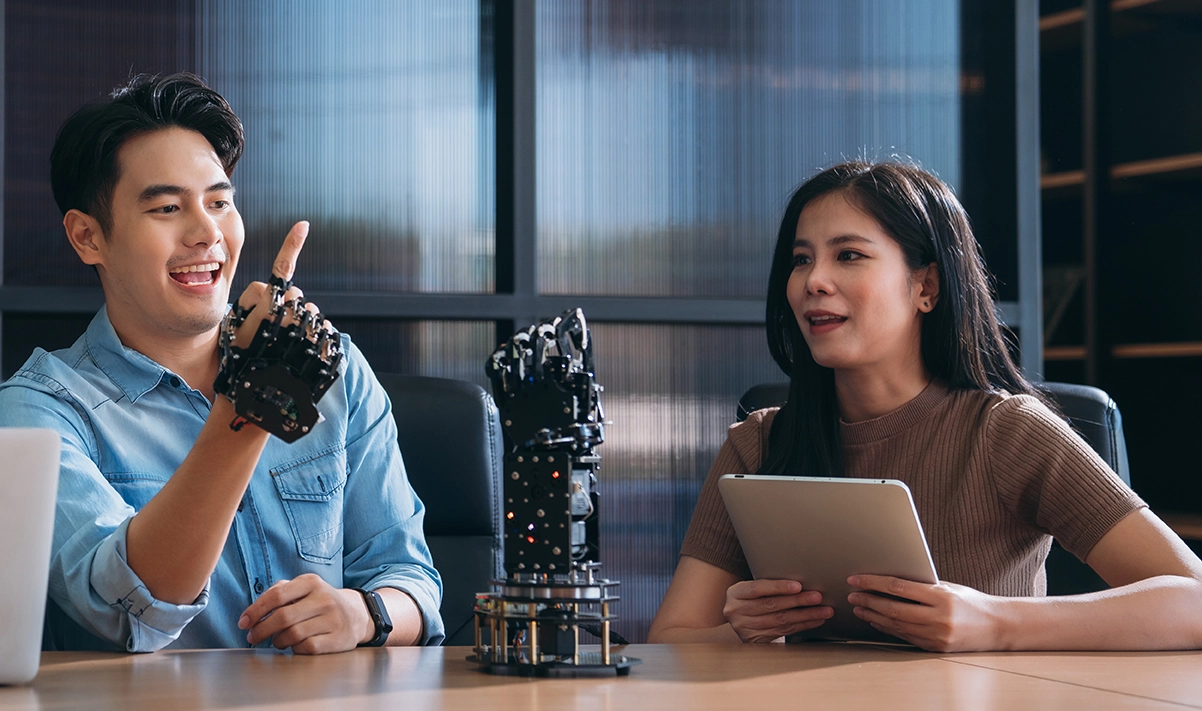
Welcome to the Centric3 series on machine learning, in this article, we explore Human-AI Collaboration, the relationship between humans and artificial intelligence, exploring how collaboration between the two can lead to synergistic advancements. Human-AI Collaboration represents a convergence of human expertise and machine learning capabilities, empowering individuals and organizations to tackle complex challenges. Join us as we navigate the core concepts, applications, and the transformative potential that define the landscape of Human-AI Collaboration.
Introduction
Introduction to Human-AI Collaboration
The Collaborative Paradigm
Human-AI Collaboration emphasizes the synergy between human intelligence and machine learning algorithms. It seeks to leverage the unique strengths of both humans and AI to solve problems, make decisions, and achieve outcomes that neither could accomplish alone.
Interactive Learning
Interactive learning scenarios involve humans and AI systems working together, with the AI learning from human input and providing insights to support human decision-making. This iterative process enhances the capabilities of both parties.
Notable Applications
Applications of Human-AI Collaboration
Augmented Intelligence
Human-AI Collaboration enables augmented intelligence, where AI systems complement human abilities by providing data-driven insights, automating routine tasks, and assisting in decision-making across various domains.
Creative Industries
In creative industries, such as art and design, Human-AI Collaboration leads to innovative outcomes. AI tools assist artists by generating ideas, suggesting designs, and automating repetitive tasks, fostering a symbiotic creative process.
Healthcare Diagnosis
In healthcare, Human-AI Collaboration enhances diagnostic accuracy. AI algorithms analyze medical data, while healthcare professionals provide contextual knowledge, leading to more informed and precise diagnoses.
Challenges
Challenges & Considerations
Trust & Explainability
Establishing trust in AI systems and ensuring their explainability are crucial challenges in Human-AI Collaboration. Humans need to understand AI’s decisions and have confidence in the reliability of the collaborative process.
Ethical Considerations
Human-AI Collaboration raises ethical questions, especially regarding privacy, bias, and accountability. Addressing these considerations is essential to ensure responsible and fair collaboration.
Future
Future Directions & Advancements
Personalized Collaboration
Advancements in Human-AI Collaboration involve tailoring systems to individual preferences and working styles. Personalized collaboration aims to create synergies that align with the unique strengths and preferences of each collaborator.
Explainable AI Interfaces
The future of Human-AI Collaboration includes developing interfaces that provide transparent insights into AI decision-making. Explainable AI interfaces empower users to understand and trust AI recommendations.




